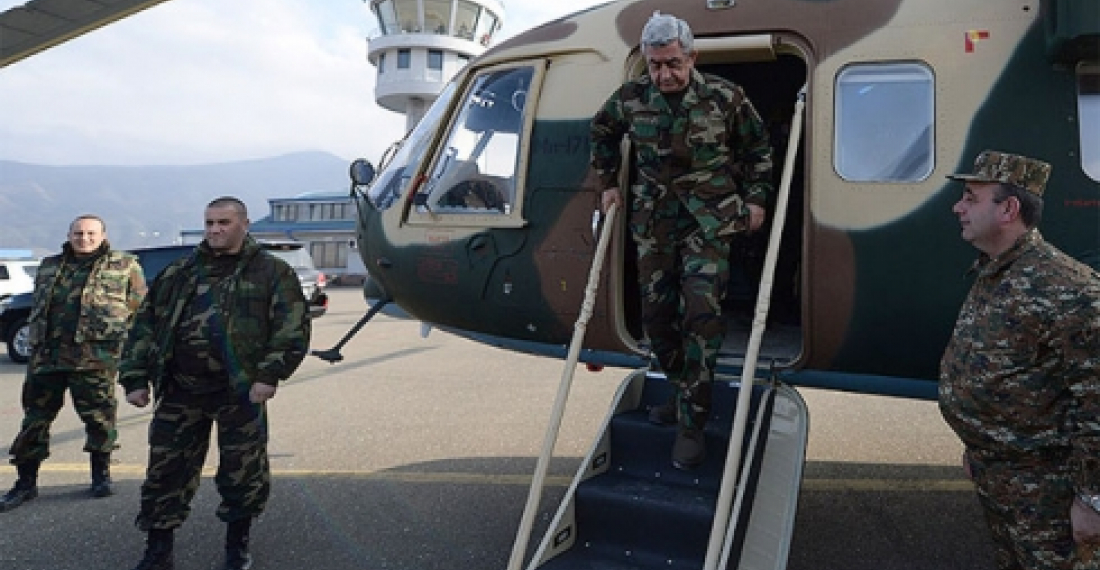The Armenian government has warned of "grave consequences" after one its military helicopters was shot down near the Line of Contact in the Nagorno-Karabakh conflict zone on Wednesday, killing all three crew members.
"Consequences for this unprecedented aggravation of the situation will be very painful for the Azeri side," Artsrun Hovhannisyan, defence minister, said on his Facebook page.
The defence ministry in Baku claims the Mi-24 helicopter of the Armenian armed forces was "trying to attack" Azerbaijani positions when defensive action was taken. Hovhannisyan disputed this allegation, saying "An investigation of the helicopter's debris will confirm that the helicopter was not military equipped."
Armenian President Serzh Sargsyan, dressed in military fatigues, arrived in Nagorno-Karabakh on board a helicopter on Thursday, while the authorities of the self-declared nagorno-Karabakh Republic asked the International Committee of Red Cross (ICRC) to mediate the return of the three men's bodies. They have been named as Sergey Sakhayan, Sargis Nazaryan and Azat Sahaskyan.
The Azerbaijani soldier who shot down the helicopter, Ilkin Muradov, "has been awarded a third degree medal 'For Distinguished Military Service' for shooting down the enemy's Mi-24 helicopter, and for vigilance and heroism on combat duty," according to the Azerbaijani defence ministry.
INTERNATIONAL REACTION
U.S. State Department spokeswoman Jen Psaki told reporters in Washington on November 12 "today's events are yet another reminder of the need to redouble efforts on a peaceful resolution to the Nagorno-Karabakh conflict, including reducing tensions and respecting the ceasefire."
EU foreign policy chief Federica Mogherini called for an inquiry: "it is essential that all sides show restraint and avoid any actions or statements which could escalate the situation."
The EU also reiterated its support for the OSCSE Minsk Process, which issued a statement on Wednesday expressing concern and condolence. The US co-chairman of the group, James Warlick, said on Twitter "a wider conflict in Nagorno-Karabkh is in no one's interest. The sides should avoid further escalation and reject war as an option."
Warlick also noted that the OSCE Permanent Council discussed the Nagorno-Karabakh conflict on Thursday. The increased tensions comes just days after Presidents Sargsyan and Aliyev met in Paris for negotiations chaired by French President Francois Hollande.
source: commonspace.eu with agencies
photo: Armenian President Serzh Sargsyan, wearing military fatigues, arrives in Stepanakert on Thursday on board of a helicopter of the Armenian Air Force. Sargsyan is seen greeted by the President of the self-declared Nagorno-Karabakh Republic, Bako Sakhalian, also wearting a military uniform.







